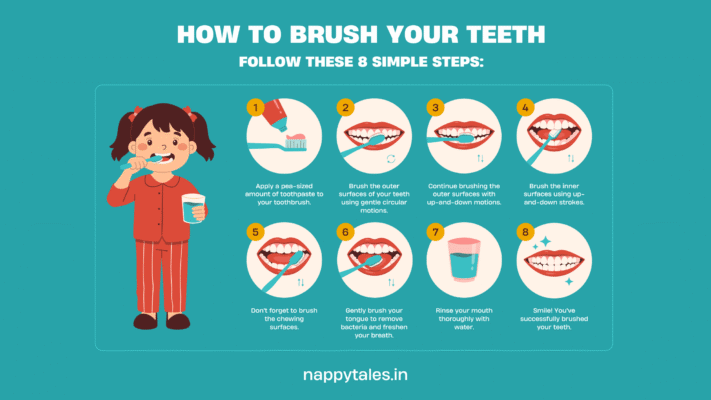Signs Your Baby is Teething + Remedies
A Helpful Guide for New and Single Parents
Teething is a big milestone in your baby’s development, but it can also be a challenging time—especially for new or single parents. Knowing the baby teething signs early on and using safe, effective natural remedies can make a huge difference in both your baby’s comfort and your peace of mind.
In this guide, we’ll walk you through the most common teething symptoms, how long teething typically lasts, and gentle, tried-and-true ways to soothe your little one.

What Is Teething?
Teething is the process by which your baby’s first teeth, also known as primary teeth or milk teeth, begin to emerge through the gums. It usually starts around 4 to 7 months of age, but for some babies, it can begin as early as 3 months or as late as 12 months.
Every baby is different, and so are their teething experiences.
Common Baby Teething Signs
Recognizing the early signs can help you act quickly to ease discomfort. Here are some of the most typical baby teething signs:
1. Excessive Drooling
You might notice your baby’s clothes getting soaked often. Drooling increases as gums become more active in preparation for tooth eruption.
2. Swollen or Tender Gums
Red, puffy, or slightly bruised-looking gums are a strong indicator that teeth are on their way.
3. Chewing on Objects
Babies instinctively chew to ease the pressure under their gums. They may chew on their hands, toys, or anything within reach.
4. Irritability and Fussiness
Discomfort in the gums can cause crankiness, sleep disruptions, and difficulty feeding.
5. Change in Eating Habits
Teething pain may make babies reject food, even their favorite bottle or breast.
6. Mild Temperature
A slightly raised temperature (below 100.4°F or 38°C) can occur. High fever is not typical for teething and may indicate another issue.
7. Pulling on Ears or Rubbing Cheeks
Babies sometimes tug at their ears or rub their cheeks to relieve gum discomfort. It’s often confused with an ear infection.
Natural Remedies to Soothe Teething Pain
Using natural remedies can help ease your baby’s discomfort without the use of medications. These gentle options are safe and effective for home care:
1. Cold Washcloth or Spoon
Soak a clean washcloth in water, twist it, and freeze it for 15-20 minutes. Let your baby chew on it to reduce gum swelling.
Tip: A chilled (not frozen) spoon can also work as a soothing tool.
2. Chilled Teething Toys
Silicone or rubber teething rings kept in the fridge (not freezer) are great for massaging sore gums.
Look for BPA-free, food-grade silicone products.
3. Gum Massage
Wash your hands and gently rub your baby’s gums using a clean finger. The counter-pressure helps relieve pain and distracts them.
4. Breastfeeding Comfort
If you’re breastfeeding, nursing can be comforting even during teething, though some babies may resist feeding due to sore gums.
5. Natural Teething Gels
Opt for homeopathic or herbal teething gels that are free from benzocaine or harmful additives. Always consult your pediatrician first.
6. Frozen Fruits in Mesh Feeders
For babies older than 6 months, you can place cold fruit like banana or cucumber in a mesh feeder. It’s a tasty and soothing treat.
7. Chamomile Tea Compress
Chamomile has natural anti-inflammatory properties. Soak a clean cloth in cooled chamomile tea and let baby chew or suck on it.
Teething Timeline: When and What to Expect
| Tooth Type | Eruption Time |
|---|---|
| Lower central incisors | 6–10 months |
| Upper central incisors | 8–12 months |
| Upper lateral incisors | 9–13 months |
| Lower lateral incisors | 10–16 months |
| First molars | 13–19 months |
| Canines | 16–22 months |
| Second molars | 23–33 months |
By age 3, most children will have a full set of 20 primary teeth.
Teething and Sleep: What You Should Know
Many parents notice that teething can disrupt sleep. Babies may wake more often or have trouble falling asleep. Try sticking to your baby’s regular bedtime routine and offering comfort before bed using any of the above natural remedies.
When to Call a Pediatrician
While teething comes with discomfort, it should not cause high fever, diarrhea, or rash. If your baby shows any of these symptoms or cries inconsolably for hours, seek medical attention.
Helpful Tips for Single Parents
Being the sole caregiver during teething can be overwhelming. Here are some quick tips just for you:
-
Create a teething kit with essentials like teething toys, bibs, washcloths, and baby-safe gels.
-
Join a parenting group online or in your community for support.
-
Practice self-care whenever possible—rest when your baby naps.
-
Trust your instincts. You know your baby best.
Final Thoughts
Teething is a natural part of your baby’s development, and while it can be challenging, knowing the baby teething signs and how to soothe your child with natural remedies can make a big difference.
Remember, patience, love, and preparation go a long way. Whether you’re a new parent or navigating this journey solo, you’ve got this!
Frequently Ask Question
The first signs include drooling, swollen gums, irritability, and chewing on objects. Some babies may also have disrupted sleep and mild temperature.
Natural remedies include chilled teething rings, cold washcloths, gum massage, frozen fruit in mesh feeders, and chamomile tea compresses.
Most babies begin teething between 4 to 7 months, but it can vary. Some start as early as 3 months or as late as 12 months.
Mild temperature is normal, but high fever and diarrhea are not typical signs of teething and may indicate illness. Always consult your pediatrician.
Teething discomfort may last 3–5 days before and after a tooth emerges, but this can vary from baby to baby.
Only use natural, benzocaine-free teething gels recommended by your doctor. Avoid over-the-counter gels with numbing agents for infants.
